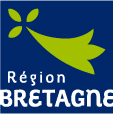Epigenome, nutrition and public policy
Co-Chairs: Martine Bellanger, Sophie A. Lelièvre and Connie M. Weaver
October 9-11, 2011 – French School of Public Health/Ecole des hautes études en santé publique (EHESP), Rennes, France – Symposium Website
October 10:
Mina J. Bissell, PhD, Distinguished Scientist, Lawrence Berkeley National Laboratory, Berkeley, CA, USA.
Understanding the normal situation to prevent breast cancer.
October 11:
François Goldwasser, MD, PhD, Head, Oncology Unit, Cochin Teaching Hospital, Paris, France.
Breast cancer, epigenome, environment and ethical considerations.
Session 1: EPIGENETIC BASES OF BREAST CANCER
Session 2: PUBLIC POLICY AND GENOME/EPIGENOME
Session 3: EPIGENOMIC & EPIGENETIC EVALUATION
Session 4: EPIGENOME, NUTRITION and MODELING
For a detailed agenda: www.purdue.edu/breastcancer/
There will be a few slots for selected oral presentations. Poster presentations and international panel discussions are also important components of this symposium.
Abstracts for poster and oral presentations related to breast cancer prevention regardless of the discipline studied as well as abstracts related to any of the topics of the four sessions chosen this year can be submitted starting January 2011 via the symposium website.
This multidisciplinary symposium on breast cancer prevention that focuses on epigenetics, nutrition and public policy is organized by the International Breast Cancer and Nutrition (IBCN) group initiated at Purdue University, USA in partnership with the French School of Public Health (EHESP) in Rennes, France. This initiative recognizes that different countries have unique perspectives which would benefit a sustained international effort to prevent breast cancer, and that the education of trainees in cross-disciplinary and international collaboration is an essential component in addressing global public health-related issues.
The goal of this symposium is to bring together global public health actors and advocates, and researchers on breast cancer prevention and nutrition to provide a platform for discussion among scientists, clinicians and other professionals in the biology, epidemiology, medicine, nutrition, communication, education and public policy fields.
 |
 |
 |


